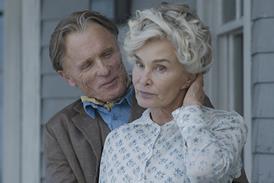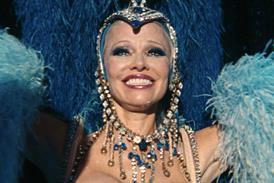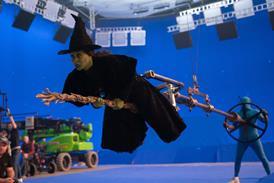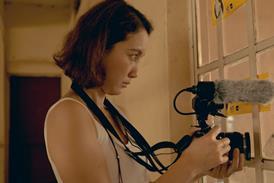Dir: Denis Dercourt. Fr. 2006. 83mins.
While it tries to wedge itself inbetween the caustic social commentary of Claude Chabroland Michael Haneke's notion of past guilt hauntingthe Western bourgeoisie, Denis Dercourt'spsychological thriller La Tourneuse De Pages sadly has neither the wit nor thedepth to play in such a lofty league.
Dercourt takes for his story a butcher's young daughter whoflunks her piano test, only to return years later to wreck her revenge on thepianist responsible for her failure. But the plot is painfully transparent,telephoned in advance by small significant details sneaked in bywriter/director Denis Dercourt from very early on.
Reliant on absent chemistrybetween its two leads, the script stodgily follows its way through a modestlydeveloped plot that will best be accommodated by television screens at home;perspectives outside the Francophone world looking pretty dim at the moment.
The film opens as10-year-old Melanie (Julie Richalet) is dutifullyrehearsing her way through the piece she is required to play at herconservatory audition the next day; though not particularly inspired, if one isto judge by her playing, she is certainly determined to make a go of it.
But before she is halfwaythrough the exam proper, her concentration is broken by one of the judges, Ariane (Frot), a well-knownpianist, who is busy signing autographs for her admirers.
Melanie loses the thread anddeservedly fails; on her way out she reveals her mean streak as she almostslams the cover of a piano on the hands of another girl her own age. Once home,she locks up her own instrument, puts away Beethoven's bust and abandons herartistic aspirations.
Flash forward 10 years.Melanie (Francois) is hired as an intern for a lawyer (Pascal Greggory), who happens to be Ariane'shusband. When told they need someone to babysit theirson, she immediately volunteers, and goes to live for a while in their spaciouscountry house.
Once there she finds outthat Ariane, whose career had taken a downward turnfollowing a traffic accident which undermined her self-confidence, is playingnow in a trio and needs a page turner to assist her in public performances.
Again, Melanie volunteers.Predictably enough, she manages to work her way into the heart of each memberof the family, before she metaphorically sticks the knife in their backs - andthen gives it a strong yank for good measure.
Supposedly smart and mean,Melanie, as played by Deborah Francois (the female lead in Cannes 2005 winner The Child), looks far too meek andunexciting for the role. Catherine Frot, who is muchmore experienced, can easily look haughty and distant, but is in trouble onceshe has to deal with stage fear, unexpected sexual awakening and hesitancy.
Believing there can beanything beyond cold courtesies between the two of them does not seem to be anoption. Very little is required of Greggory and thesame goes for the rest of the cast.
Technical credits areimpeccable throughout, but strangely enough the music, crucial for thecredibility of the story, remains lame and in the background. Neither ladyshows a real passion for it - if anything it is the career it offers thatmatters rather than the music itself.
The notion of playing forone's own enjoyment, advanced by Melanie's father early on, is never alsoexplored or even taken up again: strange, for the director is a professionalviola player and teaches at a Strasbourg Conservatory.
Production companies
Diaphana Films
France 3 Cinema
Les Films A Un Dollar
International sales
Film Distribution
French distribution
Diaphana
Executive producer
Tom Dercourt
Producer
Michel Saint-Jean
Screenplay
Denis Dercourt
Jacques Sotty
Cinematography
Jerome Peyrebrune
Editor
Francois Gedigier
Production design
Antoine Platteau
Music
Jerome Lemmonier
Main cast
Catherine Frot
Deborah Francois
Pascal Greggory
Clotilde Mollet
Jacques Bonnaffe
Antoine Martynciow
Julie Richalet
Martine Chevalier
Andre Macon
Ariele Buteaux



















No comments yet